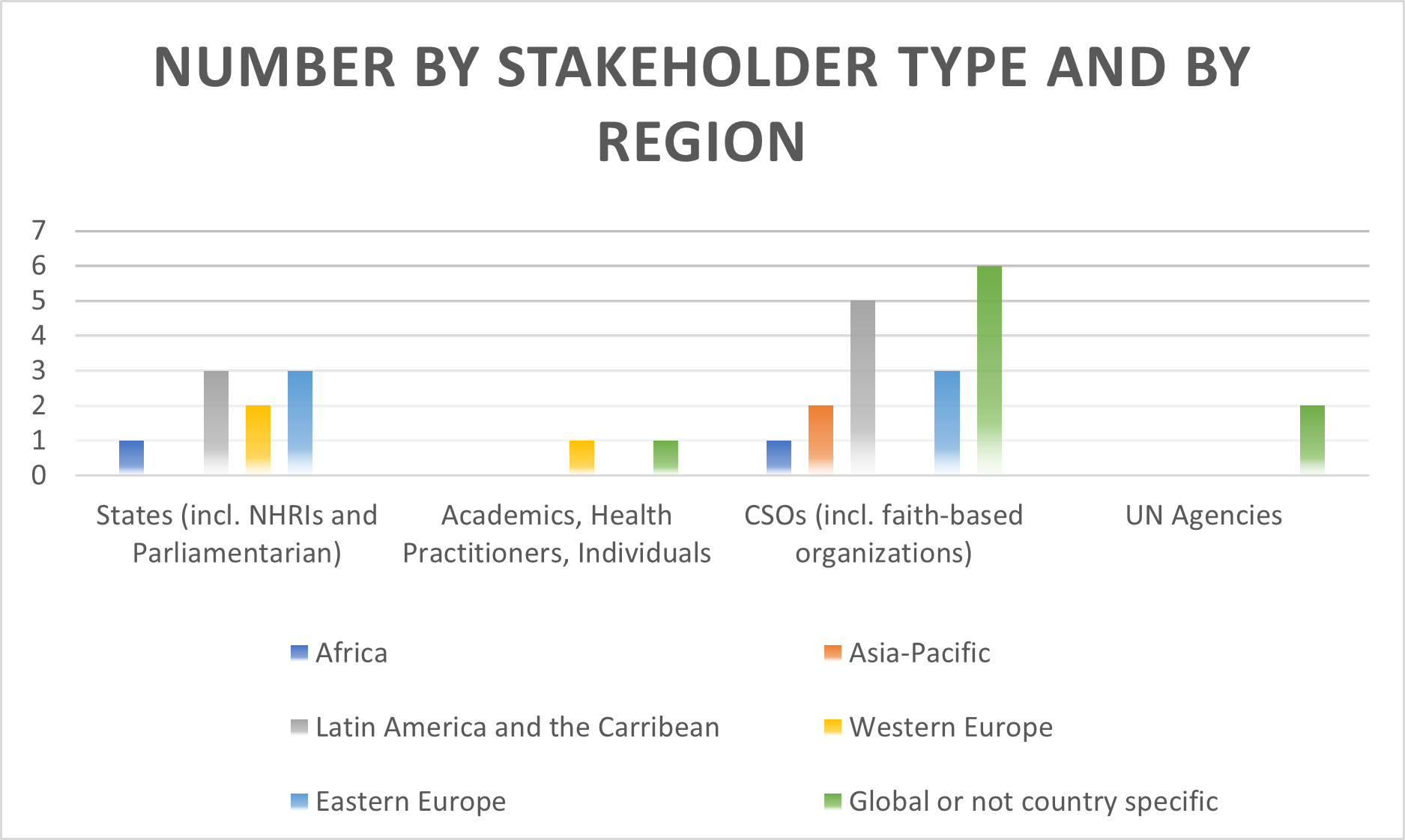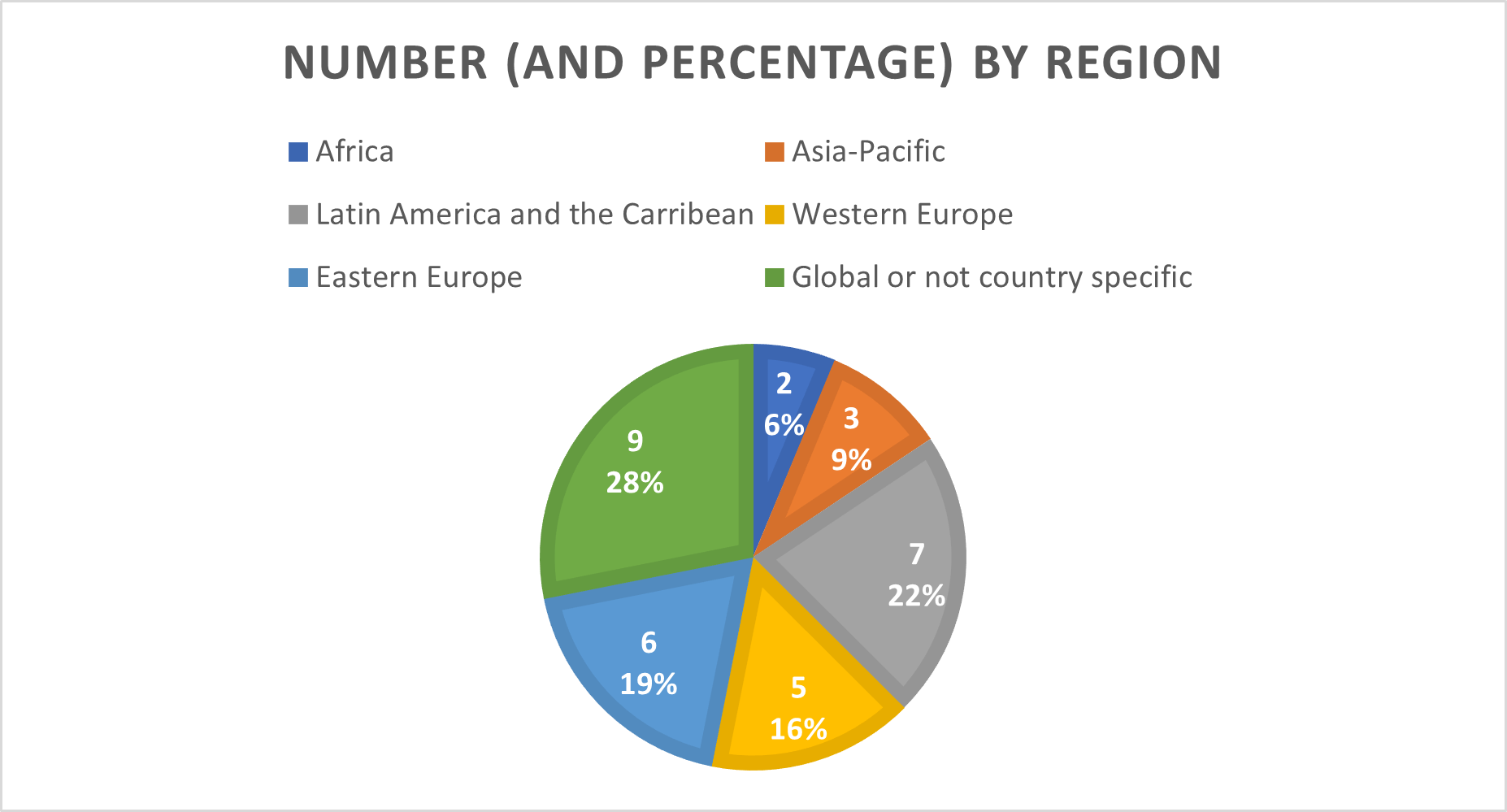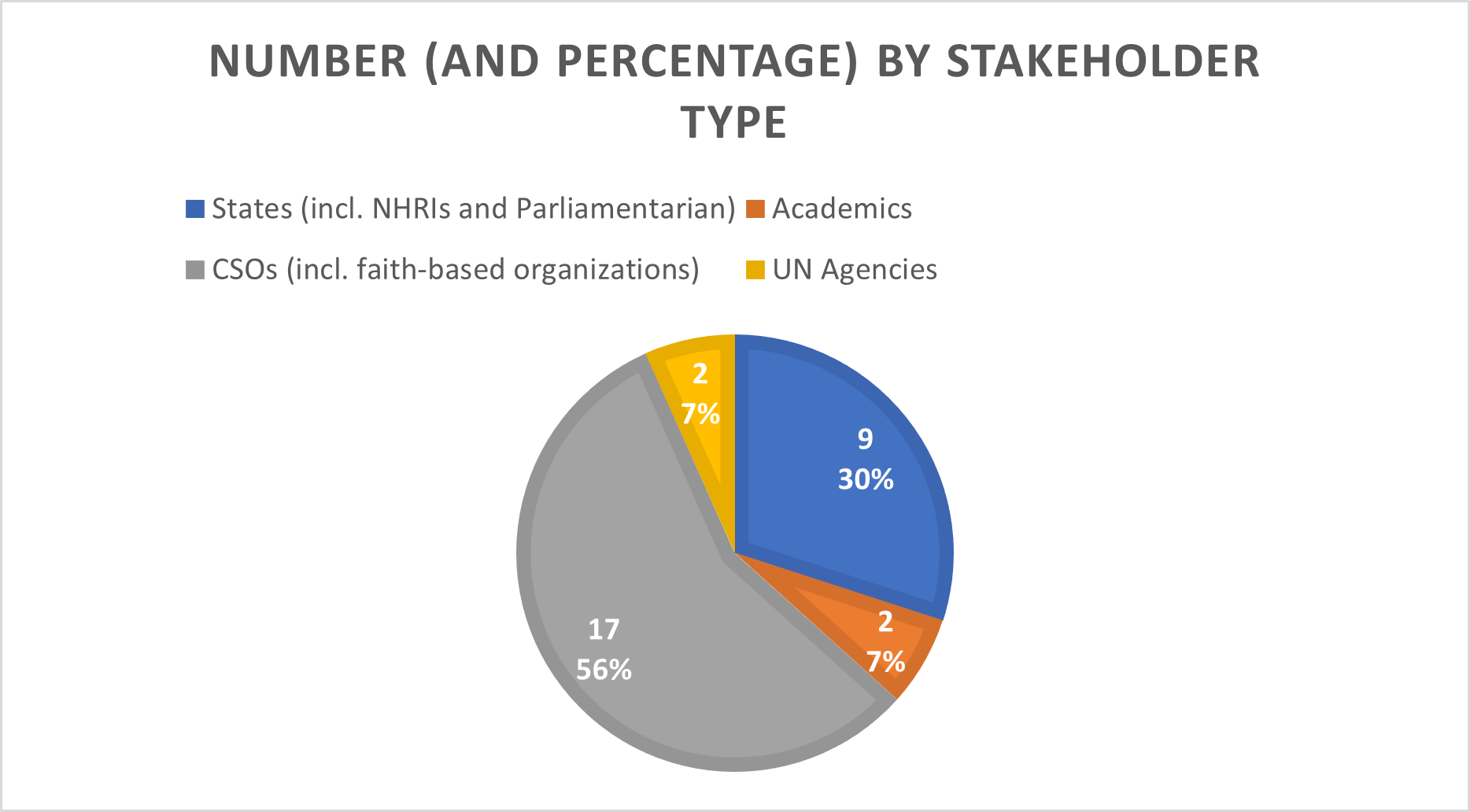Background
In accordance with his mandate pursuant to Human Rights Council resolutions 32/2 and 41/18, the Independent Expert on protection against violence and discrimination based on sexual orientation and gender identity, Mr. Victor Madrigal-Borloz, will dedicate his thematic report to the 78th United Nations General Assembly on the dynamics between sexual orientation, gender identity, and armed conflict.
More specifically, he aims to address the concrete types of conflict-related sexual and gender-based violence committed by different armed actors -State and non-State actors- in situations of conflict, as well as States’ responses to such forms of violence in peacebuilding and transitional justice endeavours. In turn, he seeks to develop recommendations and avenues for action to prevent, protect, and comprehensively address the consequences of conflict-related violence and discrimination based on sexual orientation and gender identity.
To that end, this report will examine the relationship between different forms of past and present armed confrontations with the lived experience of lesbian, gay, bisexual, trans and intersex (LGBTI) persons, as well as Gender Diverse (GD) persons in such contexts1. The Independent Expert aims to explore the entrenched gender norms that serve as both drivers and exacerbators of the consequences of conflict-related armed violence. The report will also explore how LGBTI and GD experiences during conflict have been addressed in different State-led mechanisms that respond to the consequences of armed conflict in war-torn societies, such as truth commissions, special judicial mechanisms, or reparations programs.
This report aims to support the work of existing international legal and policy frameworks related to the incorporation of gender-sensitive approaches and frameworks to peace and security measures. In that regard, the report will provide practical insight on the application of international human rights and humanitarian law, and the policies of Women, Peace and Security (Security Council res. 1325/2000 and following) as well as the program on the Rule of Law and Transitional Justice of the UN Secretary General.
This call for inputs will serve as one of the channels through which the Independent Expert will collect information to inform the preparation of his report. The information-gathering process will also include a literature review, a review of the work of various truth commissions, special judicial mechanisms or reparations programs, an expert meeting, and consultations with LGBTI and GD persons with lived experiences in conflict settings.
Call for inputs
To inform his report, the Independent Expert is seeking inputs with information, data, and views from all relevant stakeholders (among others, States, civil society organizations, National Human Rights Institutions, United Nations agencies, regional institutions, corporate entities, and individuals) who are kindly invited to consider the following questions:
- Does the response relate to a particular armed conflict? If so, please indicate the type under international legal standards (Non-International Armed Conflict, International Armed Conflict), the parties involved, the duration in time, the overall characteristics of such conflict with special focus on the root causes and drivers (ethnic, religious, political, gender, territorial domination, control over illegal economies, among others). Please reserve one or two paragraphs to describe generally the sex- or gender-based dimensions of the conflict (for example, forced recruitment of girls and boys, specific rules imposed to civilian population regarding dressing and other norms of conduct informed by gender roles/stereotypes, situation of sexual violence).
- Has the relevant State ratified, signed, or adhered to regional or international human rights/ humanitarian law / international criminal law treaties, declarations, programs or policies or any other international instruments aiming to address the causes and consequences of armed conflict? If so, please indicate which ones, the date of ratification/adherence, and the correspondent domestic act/instrument. Please also consider the following questions:
- Have any of these instruments been utilized or interpreted by domestic courts or other authorities with a gender-specific perspective? (i.e., to provide redress for victims of conflict-related sexual violence, individualize reparations for gender-based violence, criminal responsibility for serious breaches to IHL or grave violations of IHRL).
- Have SOGI-specific considerations been incorporated in such interpretative process? If so, please detail the domestic sources and provide a brief summary of the relevant rulings/standards adopted.
- Is there an ongoing National Action Plan (NAP) aiming to implement the recommendations of the Women, Peace and Security agenda (Res. 1325 and subsequent)? If so, are there any SOGI-related measures included in the NAP? If not, please outline the reasons as to why it has not been considered, as well as any information you deem fundamental provide a comprehensive picture of the SOGI situation in the relevant NAP.
- Has the country undergone a peacebuilding (including peace talks /negotiations) or any other process aiming to conclude the armed confrontations? If so, please provide the following information:
- Have LGBTI and GD persons participated in those processes? Indicate the forms of participation (civil society, appointed officials) and elaborate on specific examples that inform the overall characteristics of that participation process. Indicate also if through the participation of other affected groups LGBTI and GD people have had indirect involvement in those processes.
- Are/were SOGI-related issues part of the negotiations and/or agreements reached by the parties involved in conflict? Indicate the extent of both the debates and the measures adopted. Include any gender-specific measures or gender-blind measures that have been understood as benefiting or undermining of LGBTI and GD people’s rights in the aftermath of conflict.
- Describe the overall engagement of LGBTI and GD persons (organized or unorganized) with such processes. Provide any relevant sources documenting such engagement.
- If no engagement or participation has been planned or taken place, please indicate the hindrances for such participation as well as its causes (cultural, social, political, legal). Provide any relevant source on this subject.
- Has any documentation process of gender-specific forms of conflict-related violence been undertaken by local, regional, or international actors regarding the conflict described in section 1? If so, please provide the following information:
- Which type of relevant stakeholders have conducted such assessment? (i.e., Truth Commissions, public data officials, special judicial mechanisms, reparations programmes, international organizations, NGOs, others). Provide the specific sources and describe the general outcomes of such documentation process.
- Has any of the information gathering and/or analysis processes included any SOGI-related data/reflections? If so, please indicate the specific sources with its respective authority and utilize one paragraph to summarize its core outcomes.
- Have any official processes of statistical data gathering regarding conflict been in place? If so, indicate if those processes include any specific information on SOGI, its extent, development, problems in the implementation and any other information you deem relevant to provide a comprehensive picture of those initiatives.
- Provide any information you consider valuable in understanding the SOGI-specific logics that underlie armed violence in the relevant conflict, as well as any source narrating or documenting the lived experience by LGBTI and GD people.
- If no substantial information has been collected or no documentation process has taken place, please indicate the obstacles impeding such actions and describe them (cultural, social, political, legal). Provide any relevant source on this subject.
- Has the State adopted any transitional justice-related measures, i.e., truth, justice, reparation, and non-recurrence? If so, please indicate if those measures include a gender-specific approach and if LGBTI people have been considered as specific stakeholders in such measures. More concretely, please indicate:
- In the truth-seeking measures/experiences, such as Truth Commissions, have there been any form of acknowledgement of SOGI-specific conflict-related violence? If so, describe the extent of such acknowledgement and the characteristics of the SOGI-related conflict dynamics identified.
- In the justice measures/experiences, such as special or ordinary criminal procedures, have there been any acknowledgement of SOGI-specific conflict-related violence? Have any convictions resulted? Please indicate the extent in which transitional judicial mechanisms have involved with SOGI-related issues.
- In the reparations and non-recurrence measures/experiences, such as administrative reparations programs, has there been any prioritization or special consideration to facilitate access to LGBTI and GD victims and their relatives? Have SOGI factors been considered as an element to be considered when acknowledging the extent of the harm inflicted to the victims and awarding reparations? What types (individual/collective) and modalities (restitution, rehabilitation, satisfaction, compensation, non-recurrence) have been adopted to address the harms caused to LGBTI and GD persons in conflict? Please provide all relevant information on this subject.
- If there has not been any reflection or acknowledgment of the situation of LGBTI and GD persons, please indicate the cultural, legal, and political obstacles to such recognition. Specify which discourses, cultural practices or even legislations impede the substantial engagement of LGBTI and GD persons with the transitional justice measures adopted.
- Has the State adopted any other relevant domestic policies or legislation addressing the causes and consequences of armed conflict that explicitly or implicitly benefitted or undermined LGBTI and GD people (for example, internal security legislation, mechanisms forbidding the enrollment of LGBTI or GD people in the military)? Please elaborate on any relevant domestic measures not mentioned above, with a particular emphasis on the acknowledgment of specific-SOGI conflict-related violence and its victims.
- What reconciliation measures or practices have been adopted? State-sponsored, civil society and community-based experiences should all be mentioned. Have any of those measures/practices or experiences been initiated by LGBTI and GD persons/organizations? Please describe those processes and signal all relevant stakeholders and actors.
- Describe any civil society alliances, coalitions or initiatives aiming to raise awareness on the causes and consequences of armed conflict in the lives of LGBTI and GD people, as well as specific forms of SOGI-related violence. Indicate how their collective action operations and strategies work to make visible lived experience of LGBTI and GD people during conflict. Outline any obstacles they face in such work and the ways in which they have or have not been addressed.
- Include any relevant information of international advocacy initiatives before regional and international organizations’ mechanisms and organs, such as the UN Security Council. Describe any obstacles and challenges organizations face in these processes of engagement with international institutions. Furthermore, describe the role such institutions have played (or not) in acknowledging the SOGI-related conflict dynamics and forms of violence.
- Provide any additional information you consider relevant to enrich the understanding of the overall relationship between SOGI, peace and security that might have gone overlooked in the previous questions.
How to submit information
Inputs should be submitted via email to ohchr-ie-sogi@un.org before 15 April 2022 (6 p.m. CET) with the subject line: “Submission: report on Peace, Security and SOGI.”
Submissions should not exceed 3000 words in length.
Inputs received after this deadline will not be disregarded, but it may not be possible to take them fully into consideration in the report drafting process.
Responses to the questions above can be submitted in English, French or Spanish, and in Word or accessible PDF format.
NOTE: Should contributors wish that their submissions to be kept confidential, it is kindly required that they make an explicit request in the submission. Otherwise, information will be published online2 and may be referenced in the report.
The Questionnaire is available in Word version in English | Français | Español
1/ As I have acknowledged elsewhere, gender and sexuality are both complex human experiences and societal structures from which cross-cutting power imbalances and inequalities derive. Consequently, the use of some categories to refer to that intricate relation might be reductive. Notwithstanding that complexity, throughout this research process I will use LGBTI (lesbian, gay, bisexual, trans, and intersex) as well as gender diverse persons (GD) as main categories which seek to address in a sort of comprehensive way sexual orientation and gender identity and expression (SOGIE), and sexual characteristics as societal drivers of violence and discrimination, from an intersectional approach. See “The law of inclusion”, Report of the Independent Expert on protection against violence and discrimination based on sexual orientation and gender identity, Victor Madrigal-Borloz, to the Human Rights Council (2021), A/HRC/47/27, paras. 3, 7-11.


